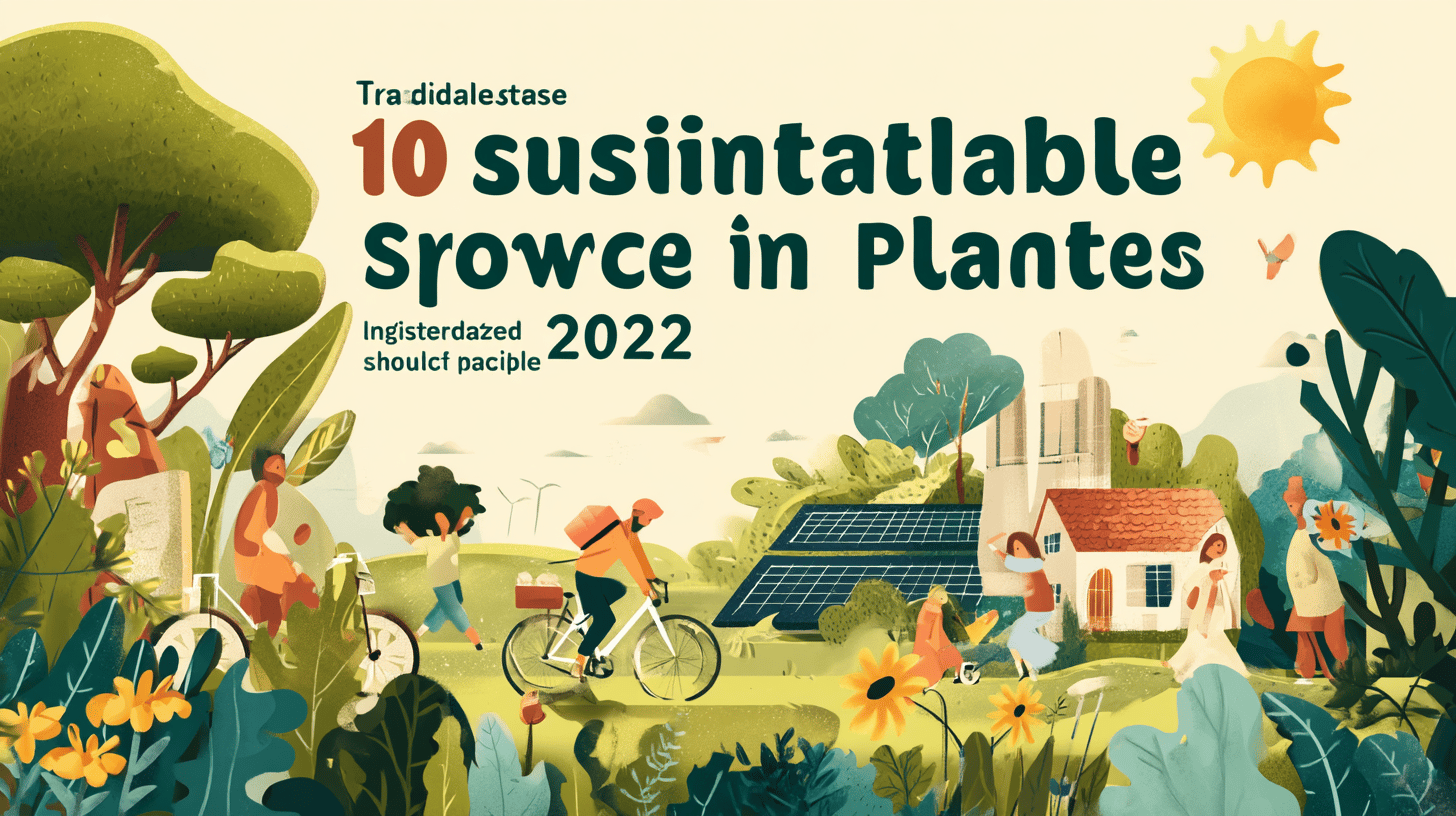Today, the need to protect the environment is more urgent than ever. As we face the effects of climate change, pollution, and the degradation of natural resources, it is essential to adopt practices that can minimize our impact on the planet. In this article, we will explore 10 sustainable practices that you can implement in your daily life to contribute to a healthier and more sustainable world.
1. Reduce Plastic Use
Plastic is one of the biggest culprits of environmental pollution. To reduce its use, start by avoiding disposable products, such as cups, cutlery and straws. Invest in reusable water bottles and fabric bags. Whenever you go to the supermarket, take your own bags and choose bulk products.
2. Choose Sustainable Transport
Transportation is a major source of greenhouse gas emissions. Whenever possible, use bicycles, public transportation, or walk. If you have to use your car, consider carpooling. This not only reduces pollution, but also reduces traffic in cities.
3. Save Energy at Home
Small changes in energy consumption can have a big impact. Turn off electronic devices when not in use, replace traditional light bulbs with LEDs, and avoid using your air conditioning excessively. Also, consider investing in energy-efficient appliances.
4. Prioritize Local and Organic Foods
Choosing foods that are locally and organically grown not only benefits your health, but also the environment. Organic foods don’t use synthetic pesticides or fertilizers, and local produce doesn’t create carbon emissions when transported long distances. Try using local farmers markets and farmers markets to stock your pantry.
5. Practice Recycling and Composting
Separating your waste properly and recycling materials such as paper, plastic and glass is an efficient way to reduce waste. In addition, composting food scraps and organic waste reduces the amount of waste that ends up in landfills. Learning how to compost at home is a simple practice that brings benefits to your vegetable garden or garden.
6. Contribute to Water Conservation
Water is a precious and scarce resource in many parts of the world. To save water, take shorter showers, fix leaking taps and pipes, and use rainwater to water plants. Small actions, such as turning off the tap while brushing your teeth or washing the dishes, can also make a difference.
7. Encourage the Use of Renewable Energy
If you have the means, consider installing solar panels on your home. Renewable energy sources, such as solar and wind, are sustainable alternatives to fossil fuels and help reduce our reliance on polluting sources. Whether it’s supporting renewable energy projects in your community or opting for them in your own home, every step counts.
8. Participate in Conservation Projects
Get involved in your community by participating in projects that help preserve the environment. This could include beach or park cleanups, tree plantings, or habitat restoration projects. In addition to contributing to a worthy cause, you’ll be connecting with people who share your concerns.
9. Educate Yourself and Educate Others
Awareness is a crucial step towards change. Educate yourself about environmental issues and share your knowledge with friends and family. Education is a powerful tool that can create a lasting impact on people’s attitudes and behavior towards the environment.
10. Reduce Consumption and Sell or Donate What You Don’t Need
Adopting a minimalist lifestyle can help reduce the demand for new products and, consequently, minimize waste. Before buying something new, ask yourself if you really need it. If you have items that you no longer use, consider selling them or donating them to someone who might need them. This will help extend the life of your products and reduce the production of new items.
Conclusion
Adopting sustainable practices is not only a duty, but also a way to improve our quality of life. Each of us can make a difference and contribute to a healthier future for our planet. Start with small changes in your daily life and inspire others to do the same. Remember, taking care of the environment is not a trend, but a vital necessity. How about sharing these tips with friends and family and forming a chain of conscious attitudes? Together, we can make a difference!


